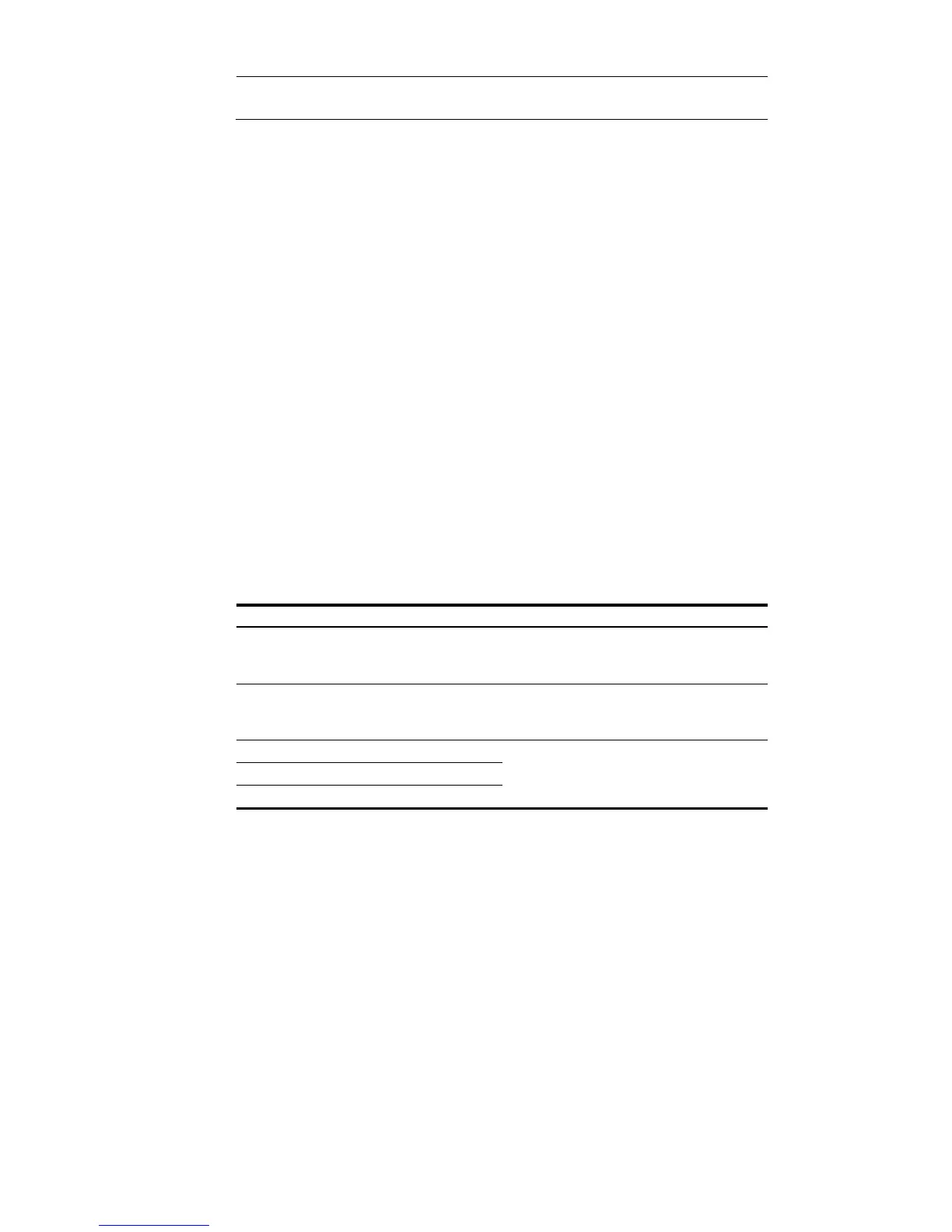403
NOTE:
The Web interface does not support ACL step configuration.
Meaning of the step
The step defines the difference between two neighboring numbers that are automatically assigned to
ACL rules by the device. For example, with a step of 5, rules are automatically numbered 0, 5, 10, 15,
and so on. By default, the step is 5.
Whenever the step changes, the rules are renumbered, starting from 0. For example, if four rules are
numbered 0, 5, 10, and 15 respectively, changing the step from 5 to 2 will cause the rules to be
renumbered 0, 2, 4, and 6.
Benefits of using the step
With the step and rule numbering/renumbering mechanism, you do not need to assign numbers to rules
when defining them. The system will assign a newly defined rule a number that is the smallest multiple of
the step bigger than the current biggest number. For example, with a step of five, if the biggest number
is 28, the newly defined rule will get a number of 30. If the ACL has no rule defined already, the first
defined rule will get a number of 0.
Another benefit of using the step is that it allows you to insert new rules between existing ones as needed.
For example, after creating four rules numbered 0, 5, 10, and 15 in an ACL with a step of five, you can
insert a rule numbered 1.
Configuring an ACL
Configuration task list
Configuring an IPv4 ACL
Perform the tasks in Table 147 to configure an IPv4 ACL.
Table 147 IPv4 ACL configuration task list
Task Remarks
Configuring a time range
Optional
A rule referencing a time range takes effect only
during the specified time range.
Creating an IPv4 ACL
Required
The category of the created ACL depends on the ACL
number that you specify.
Configuring a rule for a basic IPv4 ACL
Required
Complete one of the three tasks according to the ACL
category.
Configuring a rule for an advanced IPv4 ACL
Configuring a rule for an Ethernet frame header ACL
Configuring a time range
Select QoS > Time Range from the navigation tree and then select the Create tab to enter the time range
configuration page, as shown in Figure 382.

